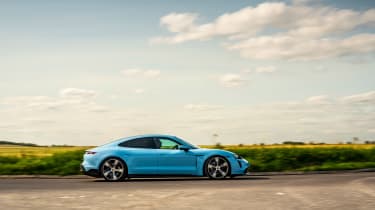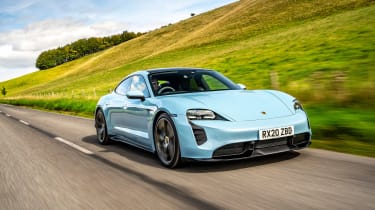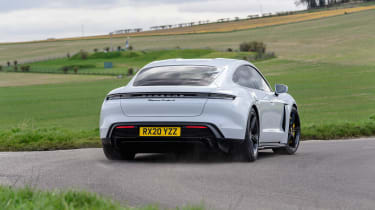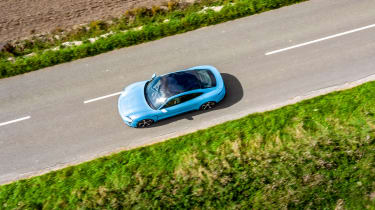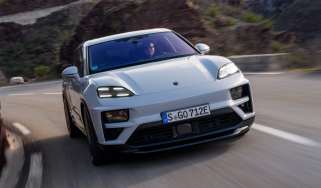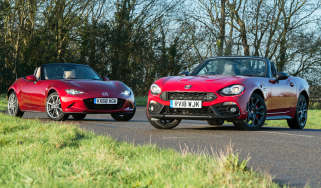Porsche Taycan review – engine, gearbox and technical highlights
All but the base model feature a motor on each axle, the rear mated to a two-speed ’box
All Taycans save for the entry-level model have an electric motor on each axle, a two-speed gearbox on the rear motor and flat battery pack running the length of the cabin. As mentioned above, there are two battery pack sizes, but they are the same physical size, which means the packaging on either option is the same.
It gets more complicated with motors, as each individual motor varies depending on the specific model, and in the case of the basic Taycan and 4S vary depending on the chosen battery size. All models also then have a second overboost peak power figure available during launch control.
So, the base Taycan with its single rear-mounted motor produces a peak of 321bhp, which rises to 402bhp on overboost. Equipped with optional Performance Battery Plus, this rises to 374bhp and 469bhp.
The 4S’s figures are compound of both motors, which equate to 429bhp peak with 522bhp available on overboost for the standard battery, rising to 483bhp and 563bhp with the larger. With a more powerful rear motor, the GTS generates 590bhp, while the Turbo model peakings at 616bhp and 670bhp (on overboost). Topping the range is the Turbo S, which has an identical 616bhp standard peak, but a higher 750bhp overboost figure.
The Taycan has the best drag coefficient figure of any Porsche road car at 0.22 and was the first production vehicle to have an 800V electrical system, where others make do with a 400V set-up. It’s this higher 800V rating that allows the Taycan to deliver its consistent performance both against the clock and when at a charging station – where its battery can be charged from five per cent full to 80 per cent full in under 23 minutes on a 270kW charger. It will take nine hours to charge the battery from zero to 100 per cent full on a 11kW charger.
Underpinning the Taycan’s new J-Platform is Porsche’s 4D Chassis Control, which incorporates a three-chamber adaptive air suspension and damper system, Porsche’s dynamic anti-roll bar technology (PDCC Sport) and its latest torque vectoring system. A selection of 21-inch wheels are available, all fitted with a 265/35 tyre on the front and a 305/30 on the rear.
Porsche’s carbon-ceramic brakes are standard on the Turbo S, with ten-piston calipers and 420mm discs on the front, with four-piston items on the rear clamping a disc that’s only 10mm smaller in diameter. Porsche claims the high recuperation system means that 90 per cent of everyday braking can be achieved without using the brakes, relying instead on the regen force when you lift off.
Each of these high-function chassis devices is down-specced as you get closer to the standard RWD Taycan, which runs on coil springs, passive dampers, and does without active anti-roll and all-wheel steering.
Manufactured from a mix of aluminium and steel, the Taycan’s body sits on a chassis that incorporates an aluminium battery tray that also forms part of the safety structure.

